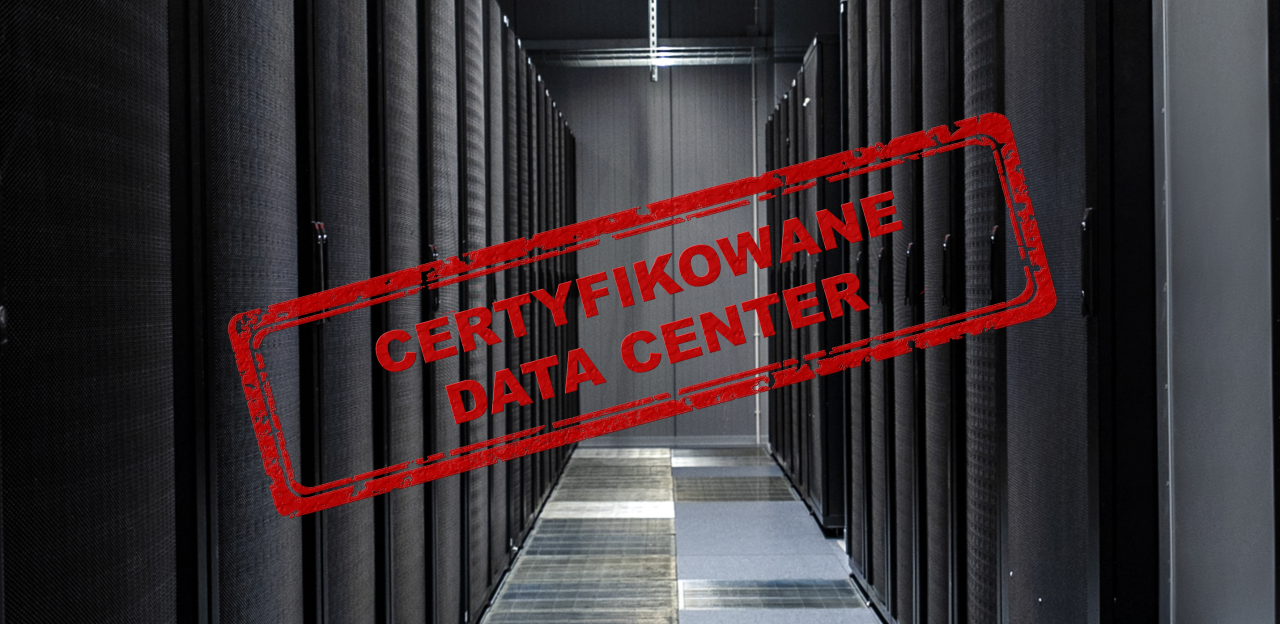
Data Center Certificates - What you need to know
Author: Tomek Kwiczor
It is often so that we are confronted with the choice of products or service providers. This choice becomes even more difficult should we discuss advanced products and complex technologies. These are some of the dilemmas clients of advanced data centers are forced to solve again and again. Which is when a range of various attestations and certifications may come in handy and help making the right decision. Certificates are granted to confirm compliance with the norms described by a given standard, while the standards, well, the standards may vary.
Knowing that not all of our clients have the sufficient knowledge and resources to properly verify a provider of DC services, we decided that our facility needs a straightforward way to advertise the quality of the services it provides, and thus guarantee the continuity of its operation and security. This was the goal we set ourselves when we sought the most appropriate standard for our DC.
In certifying the Talex Data Center, we considered three most important standard, which included:
- Standard Uptime Institute - Data Center Infrastructure Tier Standard
- Standard TIA-942 ANSI/TIA-942, Telecommunications Infrastructure Standard for Data Centers
- Standard EN 50600 – EN 50600: Information technology - Data centre facilities and infrastructures
Some thoughts on standards
The task we faced was not easy by at all. Since every standard has its complexities, it took time and special attention to analyze each of them. We not closely examined the contents of each standard but also the certification processes and values it delivered, in particular from the viewpoint of our clients.
The analysis we performed led us to believe that Uptime Institute's standard describes the operation of a DC in general terms and thus defines the goals to be achieved when designing and then building a DC, but does not provide methods to attain them. That standard focuses on the power supply and cooling infrastructure, ignoring the questions of physical security or network infrastructure altogether. Moreover, it is being criticized for its commercial focus and the lack of an unambiguous classification checklist.
The origins of the TIA-942 standard are different, as it originally covered only the cabling and telecommunication infrastructure. Over its subsequent developmental stages it was expanded to include questions related to redundancy and reliability, which were taken from the standard of Uptime Institute. It was at the latter's request that the standard abandoned the use of the term “Tier”, replacing it with “Rated”. Currently TIA-942 is one of the two official ANSI standards, the other being BISCI-02.
The EN 50600 standard presents a wholly different approach, being a broad range of detailed norms, which comprehensively detail Data Center-related issues and serving as the new official standard for the European Union states. The regulations of the standard refer and complement other official standards implemented in the EU area. The standard, developed by CENELEC (European Committee for Electrotechnical Standardization), was adopted by the European commission and then ratified and adopted by the EU member states. Endorsed by the Polish Committee for Standardization, it is referred to as the Polish Standard PN/EN 50600 (similarly to BS/EN 50600 in the UK, DIN/EN 50600 in Germany, etc.).
The standard defines four reliability, or “Availability Classes,” numbered 1 to 4, as well as four additional classes for physical security and three levels of detail for the evaluation of power usage effectiveness. The certification is performed by independent audit companies such as TÜV NORD, CIS, and others.
Why have we chosen EN 50600?
EN 50600 is a new group of standards and the first to include Data Center-related issues so comprehensively. The standardization process according to EN 50600 began in 2012, and the first certificates to confirm the compliance of audited Data Centers with the requirements of the standards were issued in 2016.
Taking the holistic nature of EN 50600, we decided to undergo the arduous and difficult certification under that very standard.
Following independent audits, the Talex Data Center in Poznań and the Talex Data Center in Wrocław obtained certificates to confirm their compliance with the requirements of the EN 50600 standard and were assigned the highest class in all evaluated categories.
Was it worth to implement EN 50600 ?
There is no reason to hide that we were the first in Poland. We had to tackle multi-page documents and blaze trails yet unknown. Even though it was no mean challenge for us, our efforts have already been appreciated by our clients and partners, who can be sure their systems are operating within a Data Center compliant with the most stringent standards.
Now, almost two years after certification, we can see that we chose well. Currently the standard is part of many guidelines, such as the communication of the Polish Financial Supervision Authority Office concerning the processing of information in a public or hybrid cloud by supervised entities. It can also be found in the implementation standard for cloud information processing, developed within a working group associated with the Banking Technology Forum of The Polish Bank Association (ZBP) and the Electronic Banking Council of ZBP. It is also worth adding that the EN 50600 standard is mentioned in the Resolution No. 97 of the Council of Ministers of 11 September 2019 about the “Common National IT Infrastructure” initiative.
Linkedin: https://bit.ly/2yRhfit